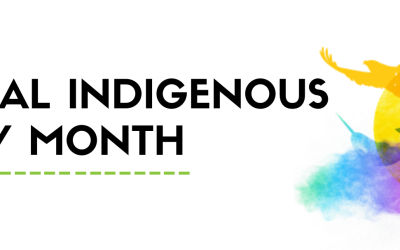I don’t often wade into American politics. I have never lived in the United States, and though I have visited often (and have crossed the country at least once), I claim no personal expertise. But bad ideas are bad ideas, and I could not resist. I find Elizabeth Warren’s public claim that she is 1/32 Cherokee highly offensive. Warren is a Harvard Law professor, now running for senator in Massachusetts. Warren does no service to her impressive academic record by making an appeal to race.
Warren is originally from Oklahoma, the only place in which I have ever heard people refer to themselves by means of racial fractions. Some fifteen years ago, I gave a talk about the rise of ethnic identity in globalising politics at the Northeastern University campus in Tahlequah, Oklahoma.
After the talk, I had a chance to visit Tahlequa, and to learn more about its history. Tahlequa was the capital of the Cherokee Nation and the final stop from the Trail of Tears –the route through which southeastern Amerindians (from several places including Georgia and Florida) were forcibly removed to Oklahoma for nearly a decade leading up to 1838.
A Mexican colleague and I (both of mixed blood) wandered into a museum, the name of which I cannot recollect. The facility was about half hour from closing time, but we got a brisk tour from a willing young man who kept talking about “our” culture, “our” people, “our” ways, and so forth. My colleague and I wondered who the young guide might be referring to when he used the collective possessive pronoun since he had a Scandinavian look about him. He was tall and slim, blond, with blue eyes. He looked like Thor, and nothing resembling Osceola, the already mixed-blood Creek rebel chief who resisted relocation from Florida.
So, we asked: Who is “we”? We are the Cherokee, he said, proudly announcing that he was 1/64 Cherokee. We quickly learned that there is a registry of such people, and that there are political, social and economic benefits associated with being identified as Amerindian in that part of the country.
But I found the practice distasteful, if not a bit laughable. A registry smacked of a pedigree record kept for livestock. In a country where the founding document claims that folks are “created equal,” the claim seemed to me no less an affront to those ideals than the practice of keeping a pedigree breeding records for slaves. Cherokees in Tahlequa seem highly preoccupied with genealogy and while I can comprehend the context, I find it no less abhorrent to keep track of human race lineage.
I don’t have anything against learning one’s family lineage. I keep and continue to gather as much as I can about my own family’s meanderings through time. But I find the collective keeping of genealogical records for the sake of tracking race somewhat disturbing.
Handing benefits and privileges based on race is only slightly better than giving out punishments for the same reason. The bottom line is that policy driven by race or cultural considerations is always bad policy because it favours some and excludes others, whatever the intentions might be. It violates the fundamental principle of equality upon which much of the liberal democratic legal framework rests, something that a Harvard law professor ought to know. It highlights race as a means to social advancement.
Multicultural policy in Canada does much the same, incidentally. Race, language, culture are not moral attributes for which people should receive honours of any kind. They are accidental features of life for which we are not responsible. They are not active personal achievements.
When Elizabeth Warren claims being 1/32 Cherokee in public, it is a step backward. While I partially understand her claim in the Oklahoma context, I find it no less offensive to liberal democratic values. The more so when the statement is made on the national scene by a well-known legal mind seeking a seat in the Senate of the Republic.
Americans don’t need the idiosyncratic Tahlequa race practices spreading to the rest of the country.


